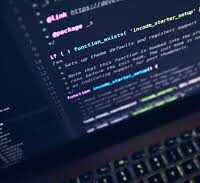Programming for Hackers, are you an aspiring hacker eager to dive into the world of cybersecurity? Programming for hackers opens doors to mastering ethical hacking skills. The right programming languages empower you to uncover vulnerabilities, develop tools, and protect systems. In 2025, the demand for skilled hackers continues to rise, with the cybersecurity market projected to reach $345 billion by 2026, according to Cybersecurity Ventures.
This article explores the best programming languages for hacking (Programming for Hackers), including Python, C++, and more, to guide you on your journey. Whether you aim to penetrate test or build secure systems, understanding these languages is key. Let’s explore how programming for hackers can transform your skills and career.
Why Programming for Hackers Matters
Programming for hackers is not just about breaking into systems; it’s about understanding technology deeply. Ethical hackers use coding to identify weaknesses before malicious actors exploit them. A strong grasp of programming languages allows you to automate tasks, analyze code, and create custom exploits.
The National Initiative for Cybersecurity Careers and Studies (NICCS) highlights that 70% of cybersecurity roles require programming knowledge. Languages like Python and C++ offer versatility and power, making them essential for hacking. Without coding skills, you limit your ability to adapt to new threats. This section sets the stage for why mastering programming for hackers is a critical step in your cybersecurity career.
Building an Ethical Hacking Lab: A DIY Guide
Why Language Choice Matters for Hackers
Selecting the right language shapes your toolkit. The right tools let you:
-
Automate reconnaissance and scanning
-
Craft reliable exploits
-
Analyze and manipulate data
-
Build custom pen‑testing frameworks
Hackers blend art and science. Strong programming skills turn theory into practical results.

Python – The Go‑To Language for Hackers
Python stands out as the best programming language for hacking due to its simplicity and robust libraries. Its readable syntax makes it ideal for beginners learning programming for hackers. With tools like Scapy for network analysis and Pwntools for exploit development, Python accelerates your hacking projects.
Data from Stack Overflow’s 2025 Developer Survey shows Python as the most loved language, with 48.9% of developers using it. Ethical hackers leverage Python to automate penetration testing and write malware analysis scripts. Start with Python to build a solid foundation in programming for hackers.
Python tops most lists for hacking tasks. It boasts:
-
Extensive libraries for networking (Scapy), web (Requests), and crypto
-
Simple syntax that speeds up scripting
-
Active community and tutorials on python.org/docs/ arxiv.org
Core Uses of Python in Hacking
-
Reconnaissance with modules like Shodan
-
Automated scanning via Nmap‑Python bindings
-
Exploit development using custom scripts
-
Data parsing and report generation
C++ – Power and Performance
C++ is a powerhouse for programming for hackers who need low-level system access. This language lets you manipulate memory and create exploits like buffer overflows. Its complexity suits advanced hackers aiming to reverse-engineer software.
According to a report from Indeed, C++ skills can boost your salary by 15% in cybersecurity roles. Learning C++ enhances your ability to understand system vulnerabilities, making it a must-know for programming for hackers. Dive into C++ to unlock deeper hacking insights.
C++ offers low‑level control and speed. Hackers leverage it to:
-
Write custom exploit payloads
-
Develop memory‑corrupting proof‑of‑concepts
-
Integrate with OS APIs for stealthy operations
Learn C++ fundamentals at isocpp.org/get-started/ and practice buffer‑overflow code in safe labs.
JavaScript and Node.js – Web‑Focused Hacking
JavaScript is essential for programming for hackers targeting web applications. This language powers interactive websites, making it a prime tool for cross-site scripting (XSS) attacks. Hackers use JavaScript to manipulate browser data and test web security.
W3Techs reports that 98% of websites use JavaScript, highlighting its relevance. Mastering JavaScript equips you to exploit web vulnerabilities, a key aspect of programming for hackers. Explore JavaScript to strengthen your web hacking skills.
Modern web apps rely on JavaScript. Hackers exploit this via:
-
Cross‑Site Scripting (XSS)
-
Server‑Side Exploits with Node.js
-
Browser automation using Puppeteer
The MDN Web Docs (developer.mozilla.org) offers exhaustive guides.
Go – Concurrency and Speed
Go (Golang) shines for its built‑in concurrency. Hackers choose Go to:
-
Build fast network scanners
-
Create parallel exploit runners
-
Deploy cross‑platform tools with a single binary
Visit golang.org/doc/ for tutorials.
Ruby – Rapid Prototyping
Ruby powers Metasploit, the premier pentesting framework. Key benefits include:
-
Readable syntax for quick tests
-
Gems for encryption, HTTP, and more
-
A strong security‑focused community
Explore Ruby’s guides at ruby-lang.org/en/documentation/.
Integrating Languages into Your Workflow
You don’t need to master all languages at once. Follow this roadmap:
-
Start with Python for scripting basics.
-
Learn C++ for exploit writing.
-
Add JavaScript for web app attacks.
-
Explore Go for high‑speed tools.
-
Use Ruby when working with Metasploit.
How to Choose the Right Language for Your Hacking Goals
Selecting the best programming language for hacking depends on your objectives. Beginners should start with Python due to its ease and community support. Advanced hackers may prefer C++ for low-level control or JavaScript for web exploits.
Consider your target systems—web apps, databases, or networks—and match them with the right language. The ethical hacking services page on Hire a Hacker Expert offers insights into real-world applications. Experiment with multiple languages to diversify your programming for hackers skill set.
Practical Steps to Learn Programming for Hackers
Step 1: Build a Strong Foundation
Start with online courses like Codecademy’s Python track or freeCodeCamp’s JavaScript tutorials. These platforms provide hands-on practice for programming for hackers. Dedicate time daily to grasp basics like variables and loops.
Step 2: Practice with Real Projects
Apply your skills using platforms like Hack The Box or TryHackMe. These sites offer challenges to test your programming for hackers abilities. Build tools like port scanners to gain practical experience.
Step 3: Join a Community
Engage with forums like Reddit’s r/NetSec or the Hire a Hacker Expert community forum for support. Communities provide tips and resources for programming for hackers. Networking with experts accelerates your learning.
The Future of Programming for Hackers
The cybersecurity landscape evolves rapidly, with AI and machine learning shaping programming for hackers. Languages like Python, with its AI libraries, will grow in importance. The U.S. Bureau of Labor Statistics projects a 33% job growth for information security analysts by 2030.
Staying updated with new languages and techniques ensures you remain competitive. Continuous learning in programming for hackers will prepare you for emerging threats. Embrace this future to lead in cybersecurity.
Deepen Your Knowledge with Internal Resources
For a comprehensive overview of hacking phases, check our Ultimate Guide to Ethical Hacking: What It Is & Why It Matters. It details reconnaissance, scanning, exploitation, and reporting.
Conclusion
Mastering these languages boosts your hacking toolkit. Python offers quick scripting. C++ unlocks low‑level exploits. JavaScript and Go cover web and concurrency needs. Ruby ties into Metasploit’s power. Follow our roadmap, leverage internal and external resources, and practice in safe labs. Your journey to becoming a skilled hacker starts now.



No responses yet